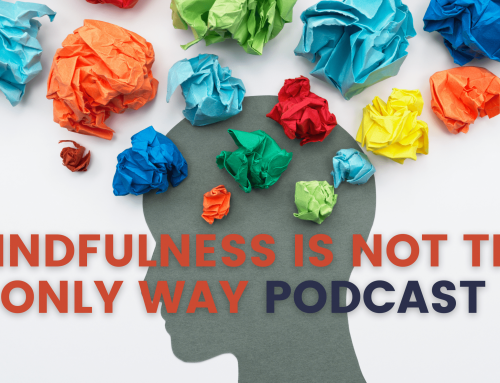There’s no denying it – most of us love animals. You only need to look on social media at the vast number of videos posted up, and the millions of hits they get. If they didn’t make us smile, we wouldn’t watch, share or like. So, after all of the positive feedback on the kitten therapy article, Lisa from team Raw Energy (a dog superfan) decided to find out why interacting with a dog is so good for stress. This article discusses some of the findings from the scientific research that’s been done around what ‘common sense’ would conclude about owning a pet – and dogs in particular.
 Why is spending time with a dog good for stress?
Why is spending time with a dog good for stress?
You don’t really have to think too hard about how a well behaved dog makes people feel. You know that all you have to do is look at a dog and it will generally wag it’s tail and be pleased to see you. You’re probably thinking of a dog you know right now – and smiling when you remember how a friendly dog made you feel. That unconditional happy response can change a person’s state in an instant, taking the attention away from whatever we were mulling over, and giving out a big boost of happy. (Truly – the sight dog, pictured right in her rain jacket, does this for the author, every single time.)
So is there any scientific evidence for the ‘happy’- psychologically and physiologically? The short answer is yes. Studies have found that caring for a dog has a range of physical and mental benefits. As well as stress-reduction, and an improvement in self-esteem, dogs can help with anxiety, depression, cardiovascular health, blood pressure, heart disease and longevity. Here’s why.
The physiological
Petting and cuddling a dog increases oxytocin, the ’cuddle’ hormone (it’s the same hormone that new Mums get in bucketloads, that helps them to bond with their new baby).
Walking and interacting with a dog raises the happy hormones of dopamine and seratonin, and lowers cortisol levels which is the fight, flight or freeze trigger, and studies have shown that these changes are enhanced when you’re with a dog.
Studies have shown that dogs are good for stress because hanging out with man’s best friend can reduce blood pressure – and a regular dog walk will of course be great for your cardiovascular health. There’s no way you can skip a dog walk like you can skip going to the gym. Dogs just won’t let you!
Dogs are good for changing the perceptions of stress levels and an increase in job satisfaction – a study revealed that office workers experienced these feelings well as a measured reduction in the stress hormone – even though all that changed was a dog in the office – nothing about the job at all. What can happen is a stressful place (such as an office or hospital) can appear to be calmer. That’s a great excuse for more employers to find ways of enabling dog owners to bring their pooch to work.
 Psychological Aspects
Psychological Aspects
Dogs love you unconditionally, and are always in the present moment. They don’t mind if you’re in a bad mood – they will soon shake you out of it and they help you to forget what ever thought it was you were hanging on to, by making you throw a ball or a stick! The study on the human-companion animal bond found that a companion animal will “reduce psychosocial distress by altering the owner’s perceptions and making situations and people seem more benign”. Taking the pressure off and changing focus is an important coping mechanism for depression and anxiety sufferers.
Children can learn to take responsibility for another living soul when they have to care for a dog, and older people have a loyal companion to keep from being lonely. Studies have also looked at the positive impact of dogs on children and adolescents with physical and mental disabilities, again the results showed a positive correlation between having a dog and improved motor and/or social skills, and an improvement in self esteem measures.
You may have already seen evidence of ‘assistance’ dogs in nursing homes, or hospitals, visiting patients to ‘cheer them up’. Assistance dogs have also helped to improve the overall wellbeing (and other measures) of alzheimers patients, abused children and adults, those with psychiatric disorders and inmates in prison.
They can help people to connect with their community – dog walkers are very friendly – and you can take a dog to training and agility classes too.
Already have a dog?
Fantastic. Now you know that a dog is good for stress, think about throwing the ball a few more times, and taking the long way round the woods or if you’re at work all day and are not the No. 1 carer for your pooch, why not go around the block in the evening after work as a de-stressing activity. It’s not just for the dog’s benefit!
Don’t want a dog at home? No problem!
You can borrow a dog, for an hour, a day, or a weekend and get the benefits without having the responsibility – as the research suggests that the simple act of hanging out with a dog is good for stress.
Sites where you can register to walk someone else’s dog such as www.borrowmydoggie.com are very popular. Doug (the author’s Romanian Fox terrier) starred in a borrow my doggie video (below). He has a ‘borrower’ called Tim who wants a dog but is a drummer in a band, so simply can’t. He takes Doug out when he fancies a dog walk.
You could even look after dogs from time to time by becoming a dog boarder with www.barkingmad.uk.com, and this is especially good if you have children and don’t want a dog full time. You can look after a dog for the weekend, and your kids get the experience.
You can also go onto your local community sites – perhaps there’s a facebook page, and offer to walk someone’s dog – you will get loads of offers.
And dog kennels are often looking for volunteers to come and walk the dogs that are waiting for their forever homes. You could start with The Dogs Trust.
So even though you might be thinking that a dog’s too much hassle, you can easily borrow one you like and hang out with him/her.
I’d wager that after an hour walking around and playing you won’t need a scientist to tell you that you feel better in your body and in your mind!
Still not convinced?
Then go virtual. You don’t have to actually be with a real dog – studies have found that “scenes containing animals are perceived “as more friendly, relaxed, cooperative, constructive, safe, and humorous”” so get onto You Tube and search ‘funny dog videos’ if you would like to de-stress and aren’t up for walkies!
Further information
Would you like other great tips on how to beat stress? Download the one page PDF
’28 tips for a stress-free life’
which is just perfect to pin up somewhere you can see it –
as a reminder of some great ways to beat stress.
References
The Human–Companion Animal Bond: How Humans Benefit. http://www.ncbi.nlm.nih.gov/pubmed/19185195
Handbook on assisted animal therapy Read More
http://www.telegraph.co.uk/news/science/science-news/9177005/Dogs-could-lower-stress-at-work.html
https://www.activebeautiful.com/ultimate-guide-pets-improve-health/
https://www.positivehealthwellness.com/fitness/need-know-pets-improving-health/

This blog has been bought you with the help of the author’s Romanian rescue dog – a fox terrier called Doug (above left) and ‘found in her front garden, having been run over, so she kept her’ whippet/greyhound cross, Truly (above right). Without these two, Lisa is convinced she would never leave her computer screen!









